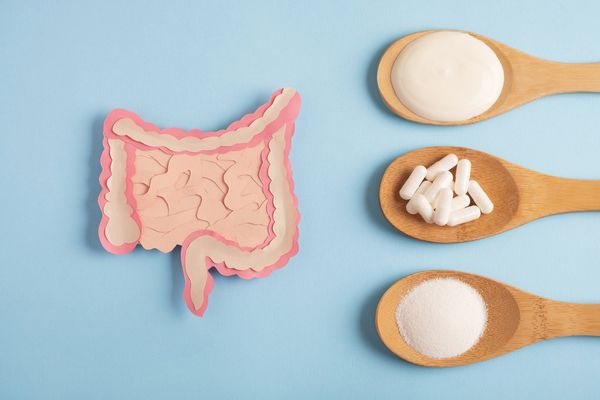Salix Pharmaceuticals sponsored this post. However, all opinions are my own.
Irritable bowel syndrome with diarrhea (IBS-D) is a condition that affects more than 16 million Americans and is characterized by chronic abdominal pain and changes in bowel habits—namely diarrhea.
Living with IBS-D can be frustrating for many, as its symptoms greatly interfere with daily activities. Though the condition cannot be prevented, many patients find they can manage their symptoms by identifying and avoiding their triggers.
When speaking to patients who express IBS-D symptoms, it is important to educate them on the possibility that their gastrointestinal tract may be more sensitive or reactive to both dietary and environmental stimuli, like stress.
In addition to dietary and environmental stimuli, some healthcare professionals believe that a bacterial imbalance in the gut may be linked to IBS-D symptoms. I had the opportunity to learn more about this topic from Dr. Mark Pimentel at an event sponsored by Salix Pharmaceuticals, which I was paid to attend. Dr. Pimentel, a leading gastroenterologist and paid spokesperson for Salix Pharmaceuticals, discussed how food poisoning can be a trigger for this bacterial imbalance in the gut.
According to a review published in the World Journal of Gastroenterology, the composition and diversity of gut flora may be critical to understanding IBS. The findings suggest that rebalancing bacteria in the gut can play a key role in managing IBS symptoms.
When evaluating patients with mild symptoms – meaning, their symptoms do not seem to interfere with daily activities – a healthcare provider may begin by recommending dietary and lifestyle changes. Keeping a food journal can help determine which foods seem to trigger distress. Some patients' symptoms are triggered by caffeine, milk, alcohol, carbonated beverages, raw fruits, and cruciferous vegetables; however, others may tolerate some or all of these without displaying symptoms.
Depending on the patient's primary complaints, a healthcare provider may also consider recommending fiber supplements, laxatives, antidiarrheal and cholinergic medications, tricyclic antidepressants, selective serotonin reuptake inhibitors (often used as antidepressants), and pain medication. In patients where bacterial imbalance of the gut is a possible cause of IBS-D symptoms, the use of other treatment options that alter the microbiota in the gut may be appropriate.
If a patient's symptoms include abdominal pain and diarrhea, consider the possibility of microbial imbalance in the gut as a possible underlying cause, to help recommend the appropriate treatment.






